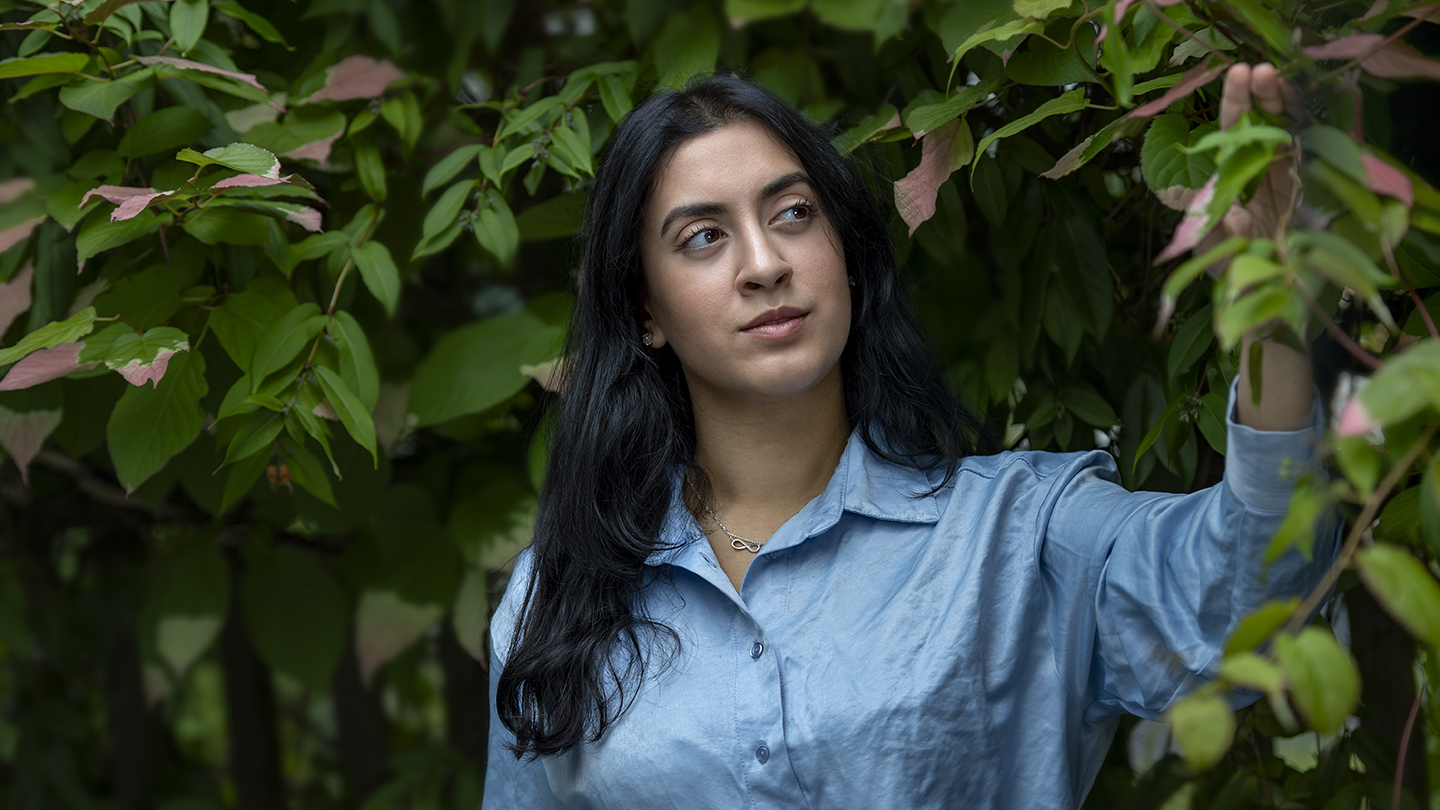Samira followed her passion and learned how to create sustainable solutions from wise ways of managing resources

Why did you choose to study Resource Recovery Biotechnology and Bioeconomy?
– Because I saw a crucial connection between the environment, technology, and our economy. This field offers ways to use natural processes to manage resources wisely and create sustainable solutions. I wanted to learn skills that would let me make a real impact by finding practical ways to tackle environmental challenges and contribute to a better future for all.
What have you learned during your education?
– I engaged in a mix of hands-on learning and theoretical study. I dove into the principles of biotechnology, discovering how living organisms can be harnessed for resource recovery. I explored various processes aimed at sustainable solutions. Moreover, I also explored the economic side, understanding how different methods fit with business strategies and contribute to the broader bioeconomy. Through collaborative projects, discussions, and practical research, I sharpened my problem-solving skills and prepared to actively contribute to this important field.
What was the best thing about the programme?
– The best thing was the blend of practical learning and theoretical knowledge. It offered us unique opportunities, like collaborating with various companies on projects involving lifecycle analysis and the circular economy. In a separate course, we even designed a complete industrial plant, assessing its theoretical viability and practical feasibility in the real world. This practical engagement sets this programme apart, empowering us students with tangible skills for both analysis and application.
What career opportunities are available now when you have completed your studies?
– I secured a PhD position immediately after completing my Master's degree. However, upon observing my fellow colleagues, I noticed that many of them successfully landed jobs even before graduating. These opportunities encompassed roles such as research and development engineers, laboratory engineers, and process engineers. Hence, it's safe to say that the prospects for finding employment are exceptionally promising.
What do you do in five years?
– Hopefully, be done with my PhD, and working either within the academic field or out in the industry.
Why did you choose to study in Sweden and Borås?
– I was born in Sweden and my decision to study in Borås stemmed primarily from the university’s Bachelor's programme in Chemical Engineering Applied Biotechnology. What attracted me to that programme was the field of biotechnology, which I became very interested in already during high school.
What is the student city of Borås like?
– The city is calm and welcoming to students. People are friendly, and you'll find many cafes and places to visit. What's great is that you can easily walk or use public transportation to get around without things being too far away. It's also close to Gothenburg and Landvetter Airport, and there are good connections to get there.
Where was your favourite place on campus?
– It was probably the pantries where my fellow colleagues and I would relax for lunch, coffee, and fika breaks. Additionally, since there are various student pantries available, we weren't confined to a single location all the time.
What tips do you have for those considering applying to the same programme as you?
– First things first, follow your passion. If you're really into the subject, that's a big plus. It's way easier to stay motivated when you're studying something you genuinely love. A bonus could be picking up the Swedish language during your studies here and getting to know the renowned fika culture!
Read more
Master Programme in Resource Recovery - Biotechnology and Bioeconomy
Text: Sara Lundgren
Photo: Anna Sigge
Published 2023-08-22

